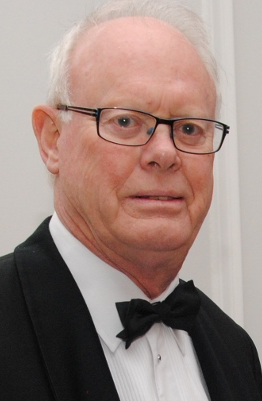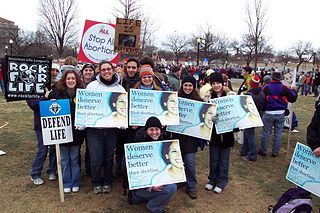
Abortion in the United Kingdom is de facto available under the terms of the Abortion Act 1967 in Great Britain and the Abortion (No.2) Regulations 2020 in Northern Ireland. The procurement of an abortion remains a criminal offence in Great Britain under the Offences Against the Person Act 1861, although the Abortion Act provides a legal defence for both the pregnant woman and her doctor in certain cases. Although a number of abortions did take place before the 1967 Act, there have been around 10 million abortions in the United Kingdom. Around 200,000 abortions are carried out in England and Wales each year and just under 14,000 in Scotland; the most common reason cited under the ICD-10 classification system for around 98% of all abortions is "risk to woman's mental health."
Abortion in New Zealand is available within the framework of the Abortion Legislation Act 2020, which entirely eliminated the criminal status of abortion and allows termination on request during the first 20 weeks of pregnancy. After 20 weeks abortion is permitted only if a health practitioner deems it "clinically appropriate" and consults at least one other health practitioner. However, the law does not specify what the conditions are which constitute "clinically appropriate", and there are no criminal penalties. Abortion is illegal only if a person who is not a licensed health practitioner procures or performs it.
The Eighth Amendment of the Constitution Act 1983 was an amendment to the Constitution of Ireland which inserted a subsection recognising "the equal right to life of the pregnant woman and the unborn". Abortion had been subject to criminal penalty in Ireland since at least 1861; the amendment ensured that legislation or judicial interpretation would be restricted to allowing abortion in circumstances where the life of a pregnant woman was at risk. It was approved by referendum on 7 September 1983 and signed into law on 7 October 1983. In 2018, it was repealed by referendum.
The Christian Democrat Party of New Zealand was a Christian socially conservative political party established in 1995. It contested the 1996 general election as part of the Christian Coalition with the Christian Heritage Party.

Gordon Frank Copeland was a New Zealand politician who served as a Member of Parliament from 2002 to 2008. He entered the House of Representatives as a list MP for the United Future New Zealand Party from 2002 but he resigned from the party in 2007. In March 2009, Copeland became Party President of The Kiwi Party, which he had co-founded with another former United Future list MP, Larry Baldock, in May 2007. Copeland stood for the Conservative Party in the 2011 New Zealand general election. Prior to entering Parliament he held a number of corporate positions before working as the financial administrator for the Roman Catholic Archdiocese of Wellington.

Sir Douglas Lorimer Kidd is a former New Zealand politician. He was an MP from 1978 to 2002, representing the National Party. He served for three years as Speaker of the House of Representatives.

The United Statesanti-abortion movement is a movement in the United States that opposes induced abortion and advocates for the protection of fetal life. Advocates support legal prohibition or restriction on ethical, moral, or religious grounds, arguing that human life begins at conception and that the human zygote, embryo or fetus is a person and therefore has a right to life. The anti-abortion movement includes a variety of organizations, with no single centralized decision-making body. There are diverse arguments and rationales for the anti-abortion stance. Some allow for some permissible abortions, including therapeutic abortions, in exceptional circumstances such as incest, rape, severe fetal defects, or when the woman's health is at risk.
Right to Life New Zealand is a nationwide but Christchurch-based anti-abortion group. It broke away from the New Zealand Society for Protection of the Unborn Child in 2000 following disagreements between the Christchurch branch spokesperson Ken Orr and the national leadership over lobbying tactics. Besides opposing abortion, Right to Life NZ opposes euthanasia, sex education, and specific policies around LGBT issues.

The Abortion Law Reform Association of New Zealand (ALRANZ) is New Zealand's national abortion-rights advocacy group in existence since 1971. Since the decriminalisation of abortion in 2020, the organisation continues to monitor and lobby for changes to the law. The organisation is based in Wellington, publishes a quarterly newsletter, and has its own web site.
Operation Rescue New Zealand was a short-lived New Zealand anti-abortion civil disobedience group (1988–1993), partly formed from Wellington and Christchurch "Pro-Life Action Groups". It was originally initiated by a group of four young men who first sought to "rescue" unborn children through prayer and non-violent means. The first New Zealand "rescue attempt" occurred outside Parkview Clinic in Wellington in October 1988, involving four men: Columban and Fintan Devine, Brendan and John Greally. Operation Rescue NZ later adopted much of its philosophy from Joseph Scheidler's Pro-Life Action League, more so from Joan Andrews-Bell's "Operation Rescue". It was formally established in different regions by well known abortion opponents Mary O'Neill (South), John Greally (Central) and Phil O'Connor (North), but only after a series of "rescues" involving the four mentioned above.
Marilyn Valeria Pryor, DSG was a New Zealand conservative Catholic, and anti-abortion advocate who served on the Executive Council of Voice for Life, and served administrative roles for New Zealand's Thomas Stafford Williams. Since the 1990s she worked on, and in her latter years was the editor of, Wellington's Diocese Catholic Newspaper - WelCom. She held an admiration for Cardinal Joseph Bernadin.

Louisa Hareruia Wall is a New Zealand former double international sportswoman, former politician, and human rights advocate. She represented New Zealand in both netball as a Silver Fern from 1989 to 1992 and in rugby union as a member of the Black Ferns from 1995 to 2001, including as a member of the 1991 World Netball Championships runner-up team and 1998 Women's Rugby World Cup winning team.

The Crimes Act 1961 is an act of New Zealand Parliament that forms a leading part of the criminal law in New Zealand. It repeals the Crimes Act 1908, itself a successor of the Criminal Code Act 1893. Most crimes in New Zealand are created by the Crimes Act, but some are created elsewhere. All common law offences are abolished by section 9, as are all offences against acts of the British Parliaments, but section 20 saves the old common law defences where they are not specifically altered.
Euthanasia became legal in New Zealand when the End of Life Choice Act 2019 took full effect on 7 November 2021. It is illegal to "aid and abet suicide" under Section 179 of the New Zealand Crimes Act 1961. The clauses of this act make it an offence to "incite, procure or counsel" and "aid and abet" someone else to commit suicide, regardless of whether a suicide attempt is made or not. Section 179 covers both coercion to undertake assisted suicide and true suicide, such as that caused by bullying. This will not change under the End of Life Choices Act 2019, which has provisions on coercion of terminally ill people.

Contraception, Sterilisation, and Abortion Act 1977, also known as the CS&A Act 1977, is an Act of Parliament in New Zealand. It was passed shortly following an inquiry by the Royal Commission on Contraception, Sterilisation and Abortion. The legislation established the legal framework for abortion in New Zealand; with abortions being allowed provided the procedure was approved by two certifying consultants and that the circumstances met the criteria of the Crimes Act 1961. In March 2020, several of its provisions were amended by the Abortion Legislation Act 2020, which eased access to abortion and eliminated most of the criteria established by the Crimes Act 1961.
The Royal Commission on Contraception, Sterilisation and Abortion was carried out in New Zealand from 1975 to 1977, shortly after the 1975 general election. The members of the Royal Commission were M. D. Matich, Barbara J. Thomson, Dame Dorothy Winstone, Duncan McMullin (chair), Denese Henare and M. R. McGregor.

Anahila Lose Kanongata'a is a New Zealand social worker and politician. She served as a Member of Parliament for the Labour Party from 2017 to 2023.

The Abortion Legislation Act 2020 is an Act of Parliament in New Zealand allowing unrestricted access to abortion within the first 20 weeks of pregnancy, and repealing sections of the Crimes Act 1961 related to unlawful abortion. After the 20-week period, women seeking an abortion must consult a qualified health practitioner who will assess their physical health, mental health, and well-being. The Act also provides provisions for conscientious objection rights for medical practitioners and exempts abortion services from certain Crimes Act provisions, while extending the definition of health services to include abortion services under the Health and Disability Commissioner Act 1994.

The Contraception, Sterilisation, and Abortion Amendment Act 2022 is an Act of Parliament in New Zealand that provides a regulation-making power to set up safe areas around specific abortion facilities on a case-by-case basis. The Bill passed its third reading on 16 March 2022 and received royal assent on 18 March.
Phyllis Joyce Bowman, DSG was a British journalist and anti-abortion, anti-euthanasia (pro-life) campaigner.









